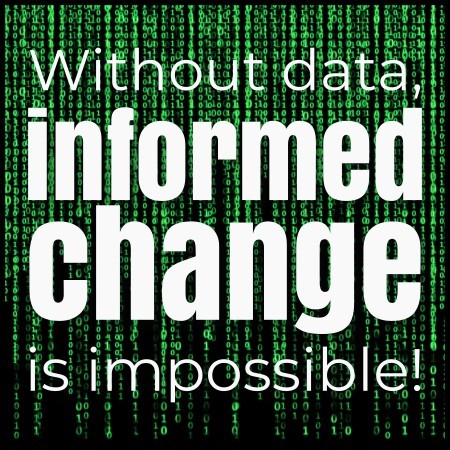Anyone who knows a little of the Old Testament of the Bible will know the famous story of Sodom and Gomorrah, and how, while fleeing from the city prior to its destruction, Lot's wife looks back and is turned into a pillar of salt. If this story (or the moral behind it if you choose not to believe the story literally) is true, how can I say looking back is sometimes a good thing? It all comes down to the heart attitude (call it "the motive") behind the looking back.
This is NOT a political blog post, but as we head into the election season, this is something we all need to do. I, for one, have, in the past, just blindly voted for the party I've always voted for. Thanks to my darling wife, who has "educated" me, I now look at current policies, as well as looking back at their track record. What have they accomplished? How did they vote in the past? This is not just important, but critical in making an educated and informed choice and acting in a positive way.
Websites, Online Marketing & Looking Back
I promised this wasn't a political post and it isn't. The preamble is merely to show that looking back can be not just useful, but critical in developing a positive, informed, and beneficial plan to go forward. The reason we send our clients 2 reports every month - traffic information, and ranking reports - is to empower our clients to know what's happening on their sites, and so give us talking points about how we can maximize the good the reports show, and addressing the less desirable line items we see. Without data, informed change is impossible!
What are some areas where looking back can be beneficial?
1. Are you getting more inquiries & clients?
Running a business should be about growing your business. A critical factor in knowing if you're growing is whether you're generating new clients. Not only generating, but your current database is getting bigger (no point in generating 100 new clients if you're losing 150!). You also need to know how much they're spending, so you need to look at your P&L statement. We cannot directly help with this, but we know people who can!
Do you track your email inquiries, your phone inquiries, and your walk-ins? Do you ask them how they found you?
2. Where are the new inquiries coming from?
This links directly to the question you should ask every new client (and your current ones too if you didn't originally). How can you know what marketing is working if you don't know where that new client who just came to you came from? And especially if it's a current client who sent them, you need to know to thank that client for their referral!
Looking back at previous years can identify trends away from, or to, different marketing strategies. You need to carefully manage where you spend your advertising dollars. Without data, you don't know where you should be spending more, or spending less.
Good traffic reports will show you what sites and sources are funneling you new inquiries.
3. What pages are performing and which aren't?
"Content is king!" still holds true today as it ever did. And you will be rewarded by Google for quality, authoritative content. But is it good? How can you tell? A traffic report will highlight those pages that get the most traffic. And it tells you which pages get few or no visits. Just like Google likes pages with many visits, they're less keen on ones that are stagnant and unvisited. Remember, their goal is to serve their clients - the people searching - with the most relevant, up-to-date, authoritative content possible.
By identifying what's hot and what's not, we can spend time reworking the poorly performing pages to get them revved up too. And we can, again, see trends in content that was getting traffic last year, that isn't today, and investigate why. Usually, it's something as simple as, it was a trending topic last year, and this year it isn't.
4. What pages are ranking and for what search terms?
Closely allied to #3 is where pages are ranking. This means if a searcher looks up a particular terms, where will your page (not the website, Google ranks pages individually) show up in the SERPS (more about SERPS on SEMRush). This is vital as research show that most searchers don't go past page 1.
5. Am I getting/reaching the right clients?
Often, I see clients advertising here, and marketing there without doing proper due diligence on their audience, and their target market. This is also linked to #2. For example, Facebook users are predominantly younger, with 62% being 45 years old or younger. If you're selling Retirement Homes, then Facebook probably isn't your best spend. When we identify what advertising is working or from what sources new clients are coming we can tailor advertising spending more intentionally.
Takeaways on looking back to drive growth
- Looking back, with the mindset of growing forward is a great stance. Looking back and hand-wringing is not!
- Looking back, to be beneficial needs past data as well as current data.
- Companies who fail to look back and track progress ar elikely doomed to failure, at best, will perform poorly.
- Companies who do not know where their clients are coming from are likely wasting precious advertising resources.
If you don't know where your traffic is coming from, or if you're getting traffic at all, or you want to know where your website pages rank for particular search terms, and you'd like this information every month, for free, so you can make informed, savvy business decisions, you need to contact us right now!


